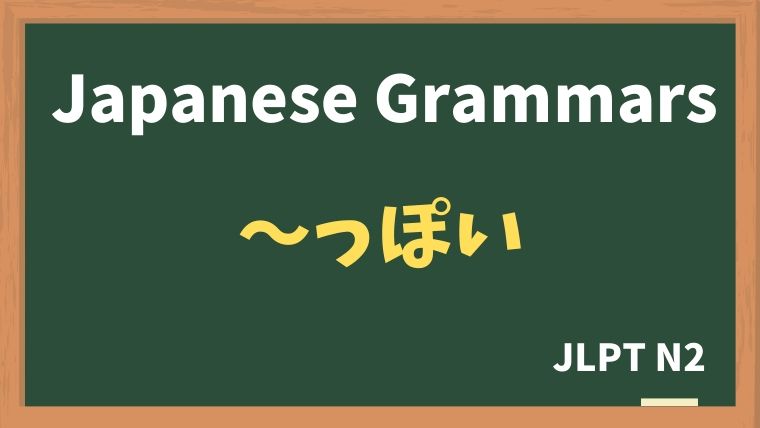
Contents
Explanation:〜っぽい
fa-check-circleMeaning
① "〜のように見える / 〜のように感じる:seems like / feels that way"
②"〜しやすい / よく〜する:easy to do / has the tendency to"
Used to describe something that has the characteristics or feel of something else. It adds a sense of resemblance, tendency, or approximation to a word, and can be translated as "-like," "seems like," "appears to be," or "tends to" in English. Depending on the context, it can describe either physical appearance, personality traits, or behavior.
fa-check-circleForm
Vます + っぽい
いAい + っぽい (ex. やすい + っぽい → やすっぽい)
N + っぽい
fa-check-circlePoints
- Resemblance: "〜っぽい" indicates that something has a similar quality or appearance to another thing. It is often used with colors or characteristics.
- Tendency or Behavior: When used with nouns related to personality or behavior, "〜っぽい" suggests a tendency to behave in a certain way or display certain characteristics.
- Casual Use: This expression is commonly used in casual conversation and is somewhat less formal than other ways of expressing similarity or tendency.
fa-check-circleJLPT Level
N2
Sample sentenes
1. 〜のように見える / 〜のように感じる
A:トムさんってどの人。
B:あの人だよ。あの黒っぽい服をきている人。
A: Which one is Tom?
B: That person over there. The one wearing the dark-looking clothes.
もう、大学生なんだし、その服はちょっと子供っぽいと思うよ。
You're already a college student, and I think those clothes look a bit childish.
このジュース、ちょっと水っぽくてまずい。
This juice tastes a bit watery and bad.
このカバン1万円もするの? ちょっと安っぽく見えるけど。
Does this bag really cost 10,000 yen? It looks a bit cheap.
2. よく〜する / 〜しやすい
彼は気が短くて、怒りっぽい性格だ。
He has a short temper and gets angry easily.
ジェシカさんは忘れっぽくて困る。
Jessica is forgetful, which is troublesome.
私は飽きっぽい性格なので、新しいことを始めてもすぐにやめてしまいます。
I get bored easily, so I tend to give up on new things quickly.
Note
This is often used when talking about personality.
Vocabulary
| Japanese |
English | |
| 気が短い | きがみじかい | short-tempered |
| 性格 | せいかく | personality |








